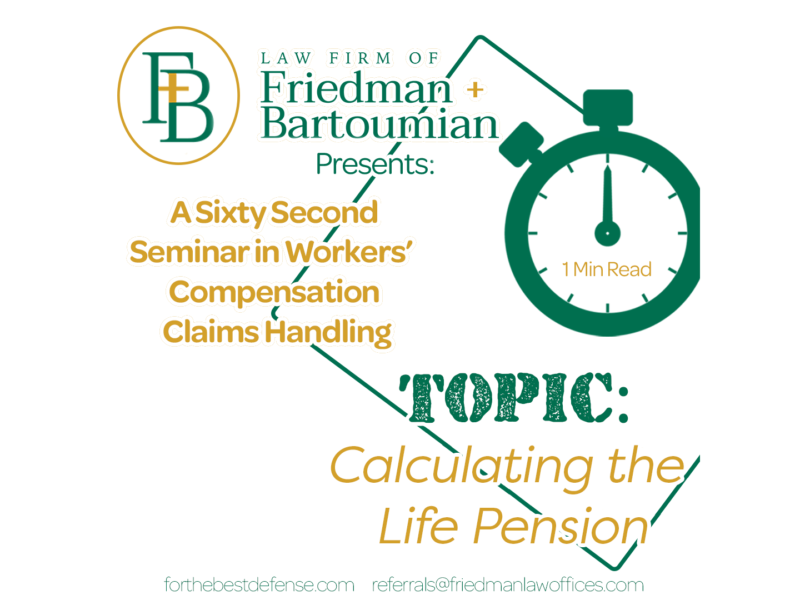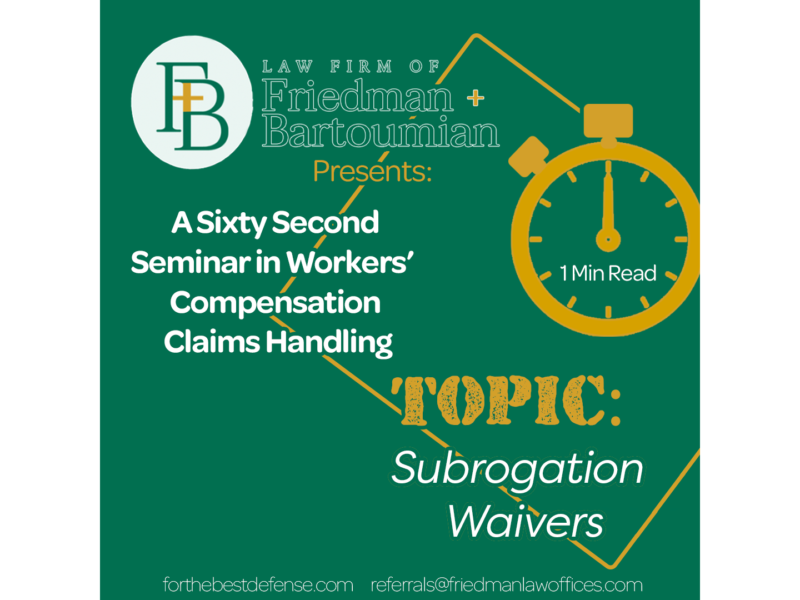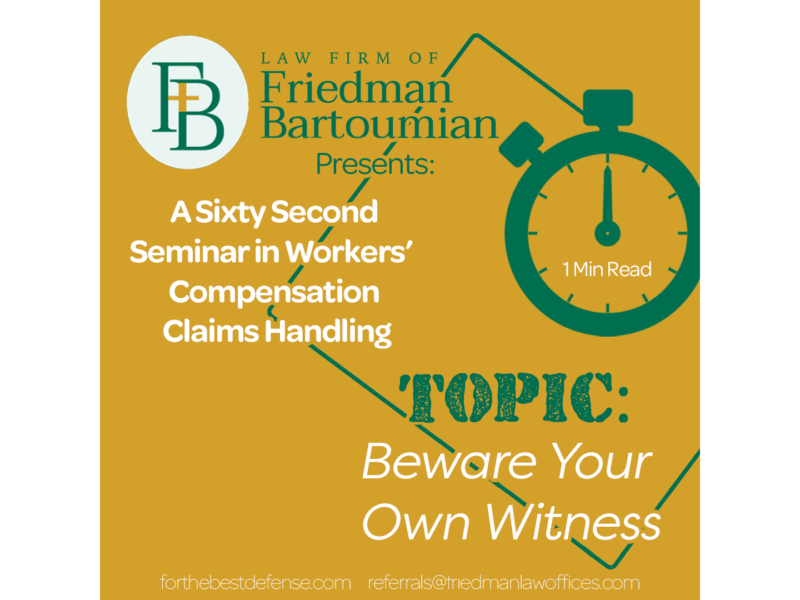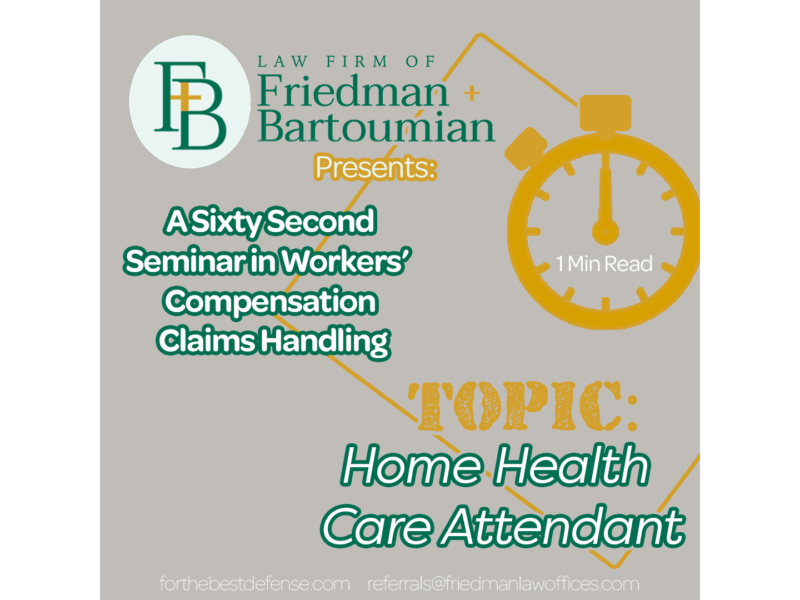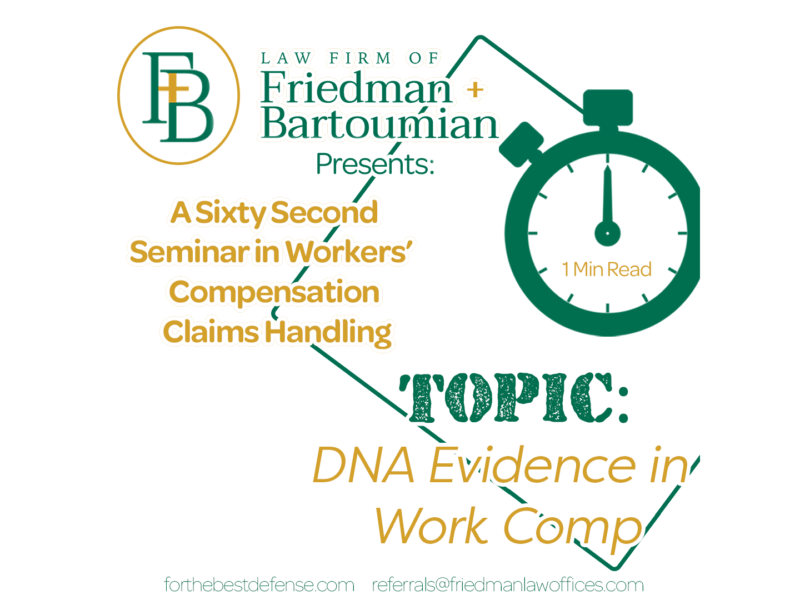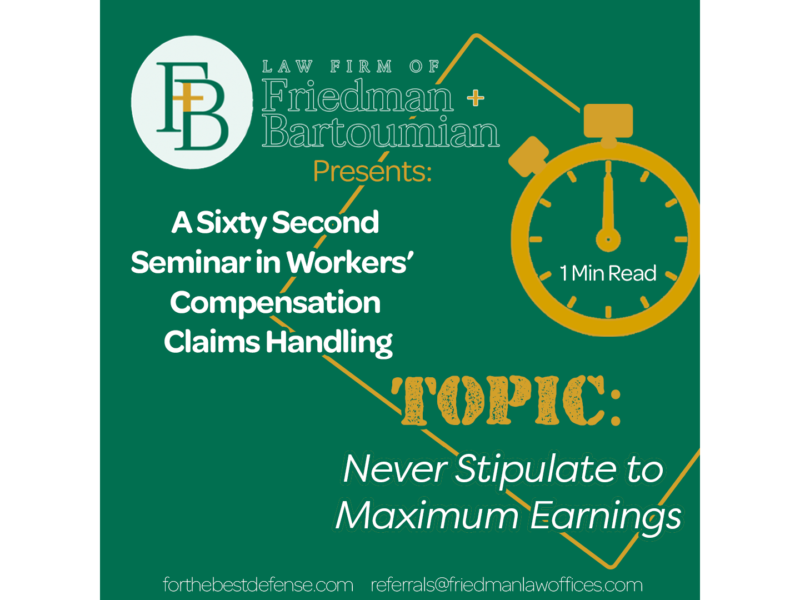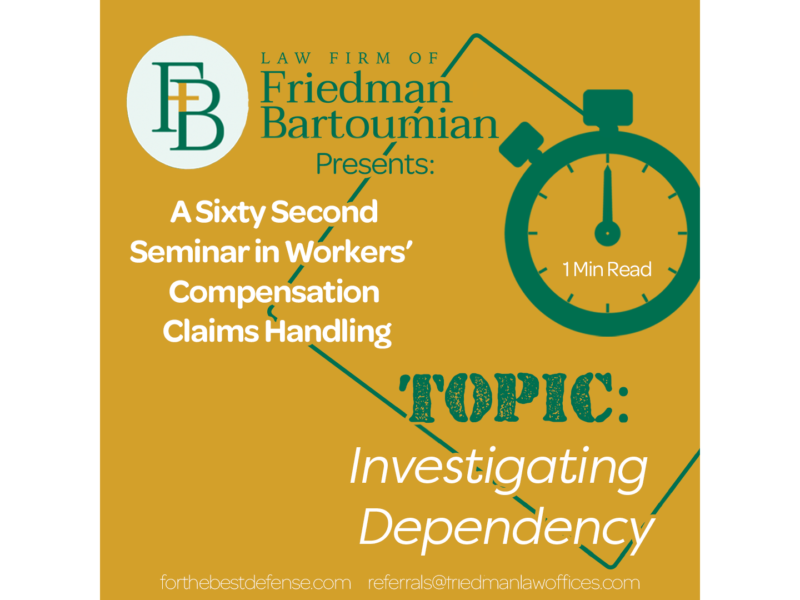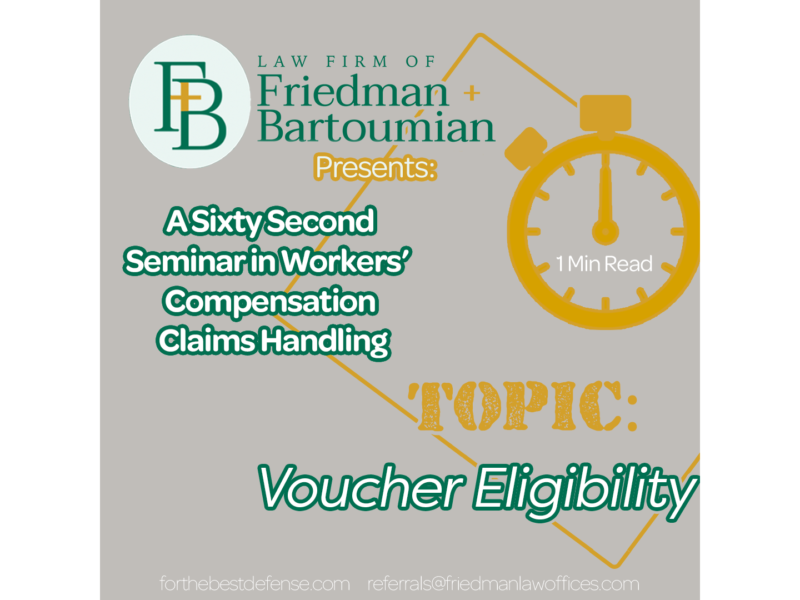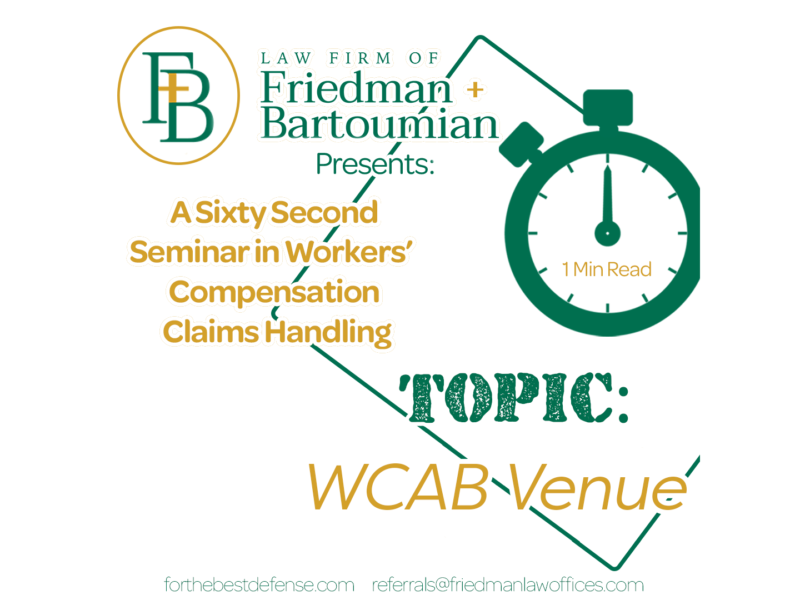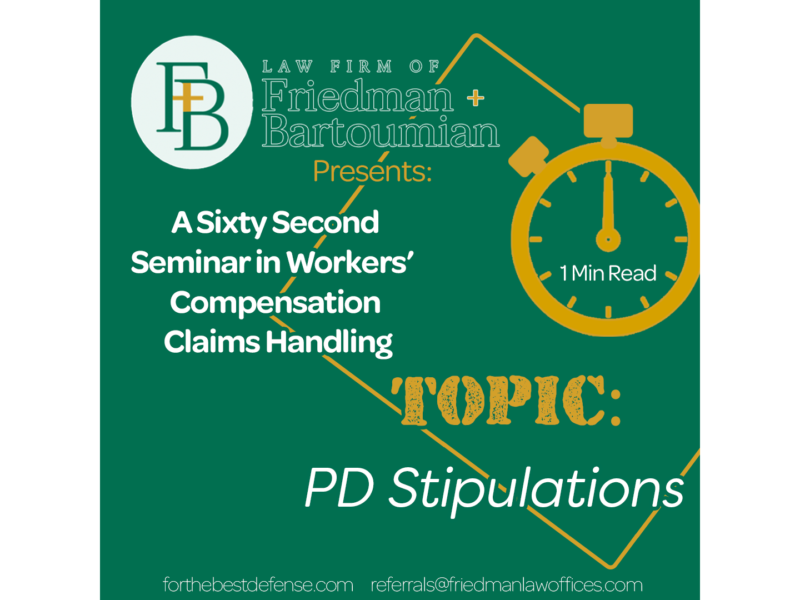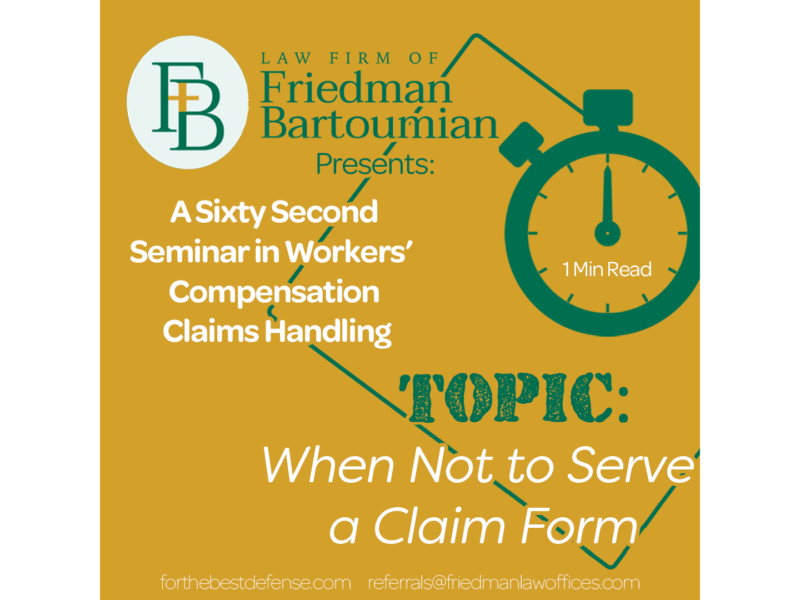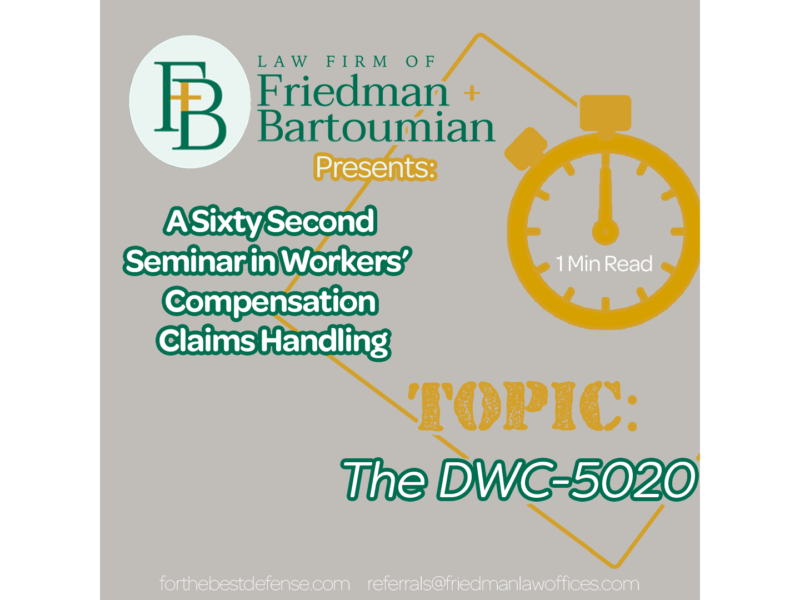We believe with a high degree of certainty that very few claims professionals have ever received instruction on how to calculate a weekly life pension (LP) rate. Most claims professionals, including judges and attorneys, rely on the Disability Evaluation Unit (DEU) to do the calculations for them. Today we will show you how to double-check …
Subrogation Waivers: A Sixty-Second Seminar in Workers’ Compensation Claims Handling
Most employers are aware of the concept of subrogation. California Labor Code §3852 specifically allows employers to seek recovery against third parties for reimbursement of workers’ compensation benefits paid due to an industrial injury attributed to third party negligence. Specifically, LC §3852 states: “Any employer who pays, or becomes obligated to pay compensation, or who …
Subrogation Waivers: A Sixty-Second Seminar in Workers’ Compensation Claims HandlingRead More
Beware Your Own Witness: A Sixty-Second Seminar in Workers’ Compensation Claims Handling
Today’s blog discusses witness testimony at the Appeals Board, particularly testimony offered when compensability of an industrial injury is in dispute. More frequently than one might anticipate, an employer is caught by surprise when their own witness completely changes their story on the witness stand. Employers naturally feel duped when this occurs and can’t understand …
Beware Your Own Witness: A Sixty-Second Seminar in Workers’ Compensation Claims HandlingRead More
Home Health Care Attendant: A Sixty-Second Seminar in Workers’ Compensation Claims Handling
When dealing with a catastrophic injury it is not unusual for a claims administrator to hire a home health care attendant to look after the injured worker. Some severely injured workers require constant care and cannot be left alone. For the most part, claims administrators have no objection to engaging a medical management company to …
Home Health Care Attendant: A Sixty-Second Seminar in Workers’ Compensation Claims HandlingRead More
DNA Evidence in Work Comp: A Sixty-Second Seminar in Workers’ Compensation Claims Handling
In death benefit claims dependency is a threshold issue, and when paternity is uncertain, it can be a major one. For example: we are aware of a case where a decedent’s ex-girlfriend sought death benefits on behalf of her minor child. DNA testing became necessary as the child’s birth certificate was deemed inadequate proof of paternity. …
DNA Evidence in Work Comp: A Sixty-Second Seminar in Workers’ Compensation Claims HandlingRead More
Never Stipulate to Maximum Earnings: A Sixty-Second Seminar in Workers’ Compensation Claims Handling
Without a doubt, it is a major error whenever a claims professional stipulates to an injured workers’ Average Weekly Wage (AWW) being “maximum”, even though maximum earnings may exist. The AWW should always be identified as a specific dollar figure instead of taking a shortcut by stating “maximum.” The reason is quite simple. Although the injured …
Investigating Dependency: A Sixty-Second Seminar in Workers’ Compensation Claims Handling
When a fatality claim is filed, the claims administrator’s best practice is to immediately investigate the circumstances of both death and dependency. Often, the only dependent of the decedent is the spouse. For the sake of this blog let us presume that a deceased worker is survived only by a fully dependent wife. The decedent …
Investigating Dependency: A Sixty-Second Seminar in Workers’ Compensation Claims HandlingRead More
Voucher Eligibility: A Sixty-Second Seminar in Workers’ Compensation Claims Handling
Most claims professionals are aware that LC §4658.7(g) forbids settlement of a Supplemental Job Displacement Benefit (SJDB) voucher for an admitted industrial injury occurring on or after 1/1/2013. There is however, one exception. Namely, when an affirmative defense is raised, where if litigated the employee may “take nothing,” including the voucher. The purpose of today’s …
Voucher Eligibility: A Sixty-Second Seminar in Workers’ Compensation Claims HandlingRead More
WCAB Venue: A Sixty-Second Seminar in Workers’ Compensation Claims Handling
Although it may be difficult to believe, there is a definite home-field advantage in workers’ compensation when it comes to litigating claims at certain Appeals Board district offices. When a judge interacts with a particular attorney every day, there is a natural tendency to favor a familiar face over an attorney who is a stranger, …
WCAB Venue: A Sixty-Second Seminar in Workers’ Compensation Claims HandlingRead More
Permanent Disability Stipulations: A Sixty-Second Seminar in Workers’ Compensation Claims Handling
Oftentimes a primary treating physician (PTP) and a qualified medical examiner (QME) disagree over the extent of Permanent Disability. One physician may identify permanent impairment at 40%, while the other rates it at 60%. When PD falls within a range, parties will often split the difference to achieve settlement. In our 40%-60% example, a split …
When Not to Serve a Claim Form: A Sixty-Second Seminar in Workers’ Compensation Claims Handling
We are cautiously optimistic that the title of today’s blog caught your attention in that most claims professionals have been trained that Labor Code §5401 requires an employer to present a DWC-1 claim form to an employee within one business day upon receipt of knowledge from any source of an industrial injury beyond first aid. …
The DWC-5020: A Sixty-Second Seminar in Workers’ Compensation Claims Handling
A DWC Form 5020 is often the first document by which an employer learns about workers’ compensation claim procedures. Created by the state of California, it is also known as the “Employer’s Report of Occupational Injury or Illness,” and is informally known as the “Employer’s First Report” or the “5020.” The DWC-5020 sets forth 39 …
The DWC-5020: A Sixty-Second Seminar in Workers’ Compensation Claims HandlingRead More

